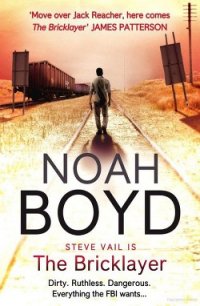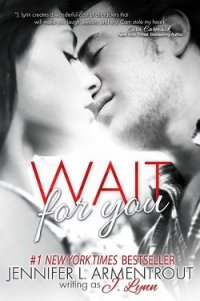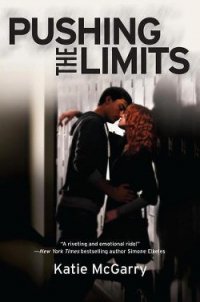Agent X - Boyd Noah (серии книг читать бесплатно .TXT) 📗
Vail called him back. “Yes, Agent Vail, Mr. Petriv called this morning and spoke with one of the assistant managers. I had flagged his file, so when she saw it, she came to me.”
“I appreciate it.”
“He told her that he wanted his accounts transferred to a bank in New York and was in the process of doing the paperwork with them. In the meantime he wanted his ATM limit upped. She told him he was already at the max, four hundred dollars, and bank policy wouldn’t allow it to be increased. She said he was not happy.”
“Did she tell him about his safe-deposit box being opened?”
“I’m the only one here who knows about that, so she couldn’t have.”
“Can you take a look at his account right now?” Vail asked.
“Give me two seconds.” Vail’s thoughts again drifted to Kate while he waited. “Yes, I’ve got it up now.”
“Did he make any ATM withdrawals yesterday or today?”
“Ah, let’s see. Yes, this morning. Looks like just before he called us. Four hundred dollars.”
“Where at?”
“At one of our branches in Arlington. In fact, I don’t live far from there. It’s right next to the old Adams Hotel.”
“Thanks for your help,” Vail said, and hung up.
He drove back to the off-site and ran upstairs to the workroom. He leafed through some of his notes until he found what he was looking for. Back in the car, he headed to the Adams Hotel.
The two men sat parked in the SUV, which was positioned anonymously among the rows of cars at the strip mall, watching the entrance to the Adams Hotel. Vail pulled up and turned his car over to the valet. The SUV’s driver dialed his cell phone, calling the man who had set the fire at the historic building, trying to kill Vail and Kate. “He just arrived.”
“He’s alone?”
“Get things ready there,” the driver said.
“I thought the woman was our target.”
Instead of answering, the driver hung up.
The big passenger with the Russian accent said, “We’ll wait until he leaves to make sure he’s heading in the right direction.”
The Adams Hotel was one of those grand old wooden structures that looked as though Civil War generals had stayed there. It almost seemed out of place with the modern Old Dominion Bank on one side and the tall, gleaming gold-glass office building on the other. The desk clerk was an older man with a thin, waxy mustache who looked like someone out of a 1940s black-and-white movie. “May I help you?”
Vail flashed his credentials and leaned closer in confidence. “I’m looking for a fugitive. His name is Yanko Petriv. I’d like to know if he’s staying here. P-E-T-R-I-V.”
The clerk studied Vail’s face briefly and then, apparently satisfied, tapped a couple of keys on his desktop computer. “I’m sorry, no.”
Vail took a slip of paper out of his jacket pocket. “How about Lev Tesar?” Vail spelled the last name. When the bank manager told him during the call about the hotel’s being next door, Vail thought it was a possibility that Petriv might be staying there. Since Petriv had false passports, Vail reasoned that the Russians would have provided him with other corroborating identification that, since it wasn’t in the safe-deposit box, might have been kept in a more immediately accessible place.
“No, sir, he’s not one of our guests either.”
“Last one, how about Oszkar Kalman? With a K.”
The clerk tapped in the name. “Yes. He was.”
“Was?”
“Yes, he checked out around noon today.”
“Did he make any phone calls?”
“Ahhhh, yes, one.” The clerk read the number, and Vail recognized it as the call to the Old Dominion Bank that morning.
“What address did he give you?”
The clerk looked around and then said, “I don’t know if I’m allowed to provide that information without a subpoena or some other legal order.” He then half turned the monitor toward Vail and gave him a tacit glance. “I have to go do something. I’ll return in a couple of minutes.”
“Thanks for your help,” Vail called after him as he disappeared through a doorway behind the desk. He swung the monitor enough so he could read it and copied down the address Oszkar Kalman had used. It was in Oakton, Virginia.
The drive took longer than Vail had predicted, and it was almost five o’clock by the time he got to Oakton. The traffic was heavy, and two separate accidents hadn’t helped. The address turned out to be an old, weathered, two-story home with a large attached garage that looked like it could have been a separate barn at one time. In an attempt to update the structure, a breezeway had been built connecting the house and garage. The nearest neighbors were a half mile in either direction. Due to some intermittent stands of pine trees, Vail was able to find a place to park seventy-five yards away that was ideal for watching the house. The thick wooden sliding doors to the garage were open a few inches, and he tried to see if he could spot any vehicles inside. He took the binoculars from under the seat and peered through them, but dusk had started to take over and the winter light was fading.
Vail thought he saw some movement in a second-floor window, but by the time he swung the binoculars toward it, there was nothing he could see. He lowered the glasses but continued to watch the second floor. A few seconds later, in the same window, he saw definite movement. As dark as it was getting, that there were no lights on meant that someone was trying not to be detected.
Vail put the car in gear and started toward the house. As it got closer, he let it glide to a stop fifty yards in front of the garage.
Suddenly a three-round volley was fired from the second floor, at least two of the slugs slamming into the front of his car. He dove out of it and took cover behind the vehicle. After a minute or so, he peeked over the trunk, looking for any further movement inside the house.
“I thought the bumper sticker said that Virginia was for lovers,” he muttered to himself.
Two more rounds were fired at him, this time from the first floor. “Evidently it’s gun lovers.”
He stood up and fired a burst into the first-floor window. Almost immediately he was fired at again, this time from the breezeway. He suspected that whoever was shooting at him was working his way to the garage, probably trying to get to his car. Vail shifted his angle behind the car to the garage and put his point of aim at the six-inch opening between the two heavy doors, then waited.
Almost too predictably, a three-round fusillade came from the narrow black opening between the garage doors. Vail opened fire, letting his Glock come back down level before pulling the trigger each time, as though he sensed that his rounds were finding their mark. Maybe it was the tiny after-echo that couldn’t have been anything but lead slamming into tissue. He rolled back into a safe position on the car’s trunk, dropped an empty magazine, and shoved in a fresh one.
Raising his head for a few seconds, he tried to draw more fire. When none came, he assumed a two-handed grip on his gun and started cautiously toward the garage. Every few feet he took a step to the right or the left so he wouldn’t be a constant target. When he got to within ten feet of the garage, another eruption of gunfire came from the opening.
Vail went into a deep defensive crouch and fired at least ten rounds in the direction of the garage while he maneuvered quickly to his left and ran to the door on that side, flattening himself against it. Now the gunman would have to actually stick his weapon outside the opening to get a shot at him. He was about to take hold of the left edge of the door and slide it completely open, all the time ready to shoot anyone who stepped out, when the sound of an engine roared inside the garage. He leaped to the opening and pulled the door open.
Tied to the front of a car, spread-eagled and gagged, was Yanko Petriv, the NSA translator. At least a half dozen of Vail’s rounds having found his chest and stomach.



